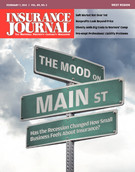Thousands of Oregonians are enjoying lower insurance premiums as a result of a year-old credit scoring law, according to a recent survey by the Department of Consumer and Business Services (DCBS) Insurance Division.
The law allows consumers to ask their insurer to re-price or “re-rate” their auto or homeowner policy once a year if the insurer used the consumer’s credit history to price the policy when it was originally issued. Insurers must lower the price if the consumer qualifies for a better rate based on their credit history; insurance companies cannot raise premiums as a result of the re-rating.
The survey of key auto and homeowner insurers showed that discounts were given in more than 8,000 instances since the law took effect Jan. 1, 2010. Collectively, those who requested a re-rating saved more than $800,000 in premiums — nearly $100 per request.
“The law is working as intended and people who have improved their credit profiles are being rewarded with better rates,” said Sen. Suzanne Bonamici, a Democrat from the Portland/Beaverton area. She chaired the Senate Consumer Protection and Public Affairs Committee in the 2009 Legislature, which passed Senate Bill 377.
Many insurance companies look at a consumer’s credit history to decide whether to issue an auto, home or other personal insurance policy or how much to charge. This practice is known as credit scoring or insurance scoring. Once a policy is purchased, however, insurers are prohibited from using credit information to raise premiums. But the new law allows consumers to request a re-rating with the potential to lower premiums.
Eleven insurance companies with the bulk of the Oregon auto/homeowners insurance market provided data for the DCBS survey of how the law is working. Based on the numbers, a typical policyholder with good credit and multiple policies (for example, multiple cars and a home) could potentially save several hundred dollars over the term of their policies. A policy term is typically a year for homeowners insurance and six months for auto policies.
Typically, one-third to one-half of policyholders who requested a re-rating qualified for a lower premium, although the percentage varied widely by company and circumstances.
The law does not require companies to notify consumers of their right to request an annual re-rating, although some companies do so voluntarily, DCBS said.
Topics Carriers Auto Homeowners Oregon
Was this article valuable?
Here are more articles you may enjoy.


 Florida Appeals Court Pulls the Plug on Physician Dispensing in Workers’ Comp
Florida Appeals Court Pulls the Plug on Physician Dispensing in Workers’ Comp  Marine Insurers Cancel War Risk Cover as Iran Conflict Escalates
Marine Insurers Cancel War Risk Cover as Iran Conflict Escalates  Mexico’s Cartel Violence Could Hit Economy and Insurance Segment: AM Best
Mexico’s Cartel Violence Could Hit Economy and Insurance Segment: AM Best  Zurich Insurance and Beazley Agree to $10.9B Cash Acquisition
Zurich Insurance and Beazley Agree to $10.9B Cash Acquisition 


